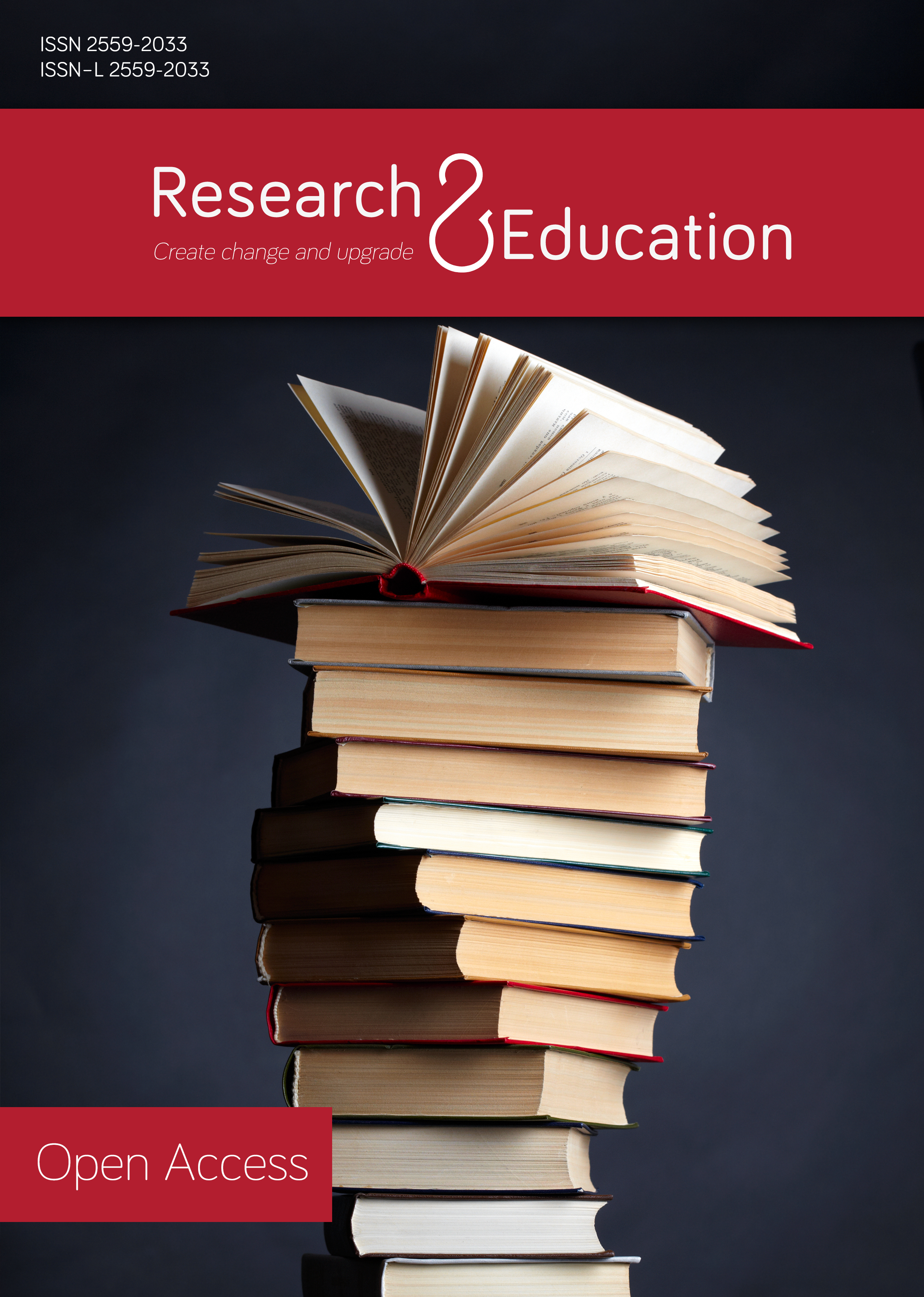REd Issue 1
-
Matematica românească – de la olimpiade la cercetarea de vârf
Radu Gologan15/03/2017https://researchandeducation.ro/2017/03/15/matematica-romaneasca-de-la-olimpiade-la-cercetarea-de-varf.htmlEducationWe discuss the impact of School Mathematics Competitions on the development of mathematical research, considering the example of the history of the Romanian mathematical school.Read More -
Fabrica de Experimente
Alexandra Butmălai, Andreea Chis15/03/2017https://researchandeducation.ro/2017/03/15/fabrica-de-experimente.htmlEducationEducation is nowadays one of the most sensitive subjects. What happens when 20 high school students decide to make steps towards creating that practical and updated education system we all crave for? The Experiments Factory is a startup based on social entrepreneurship that aims to make science comprehensible and fun. Not only has it done experiments shows with over 2,000 kids, but also launched an experiment kit for families after a crowdfunding campaign.Read More -
Metode de învățare de la 2 la 99 de ani
Andreia Petcu15/03/2017https://researchandeducation.ro/2017/03/15/metode-de-invatare-de-la-2-la-99-de-ani.htmlEducationTraditional learning methods are lately enriched alternative methods to increase performance and to simultaneously develop multiple skills. In this article, I want to present a series of practical methods that we have developed and applied lately for early learning for knowledge sciences. At the same time we want to highlight the role of museums and science centers in learning from 2 to 99 years and the benefit of learning by teaching method.Read More -
Transformarea digitală. De la inteligență artificială la calculatoare cognitive
Alexandru Roja15/03/2017https://researchandeducation.ro/2017/03/15/transformarea-digitala-de-la-inteligenta-artificiala-la-calculatoare-cognitive.htmlResearchThe aims of this paper are to identify the most important trends in information technology like virtual and augmented reality and artificial intelligence and to explain the impact of these new technologies on the educational processes. The paper explains the benefits and the threats of technological changes in terms of economy, society and education and the impact of these changes on the way in which we will access and use information in the learning processes in near future.Read More -
Aspects regarding cell specialization
Vlad Arimia15/03/2017https://researchandeducation.ro/2017/03/15/aspects-regarding-cell-specialization.htmlResearchThe aim of this paper is to suggest a theoretical model for cell specialization. We postulated that the specialization is acquired through two fundamental mechanisms: Differentiation (which shapes the structure of the cell); Activation (which determines the cell to start functioning). A special kind of activation process is the “Brain Activation” process, as the function of the brain is not solely generating electrical impulses, but also mental processes.Read More -
Medicine as a paradigm shift
Oana Săndulescu, Mihai Săndulescu15/03/2017https://researchandeducation.ro/2017/03/15/medicine-as-a-paradigm-shift.htmlResearchResearch in itself is not only a paradigm, but a paradigm shift at the same time, as each new piece of information has the potential of completely reshaping the way we see the world. But this can only happen by gaining access to multiple information sources and listening to different opinions, from scientists with different backgrounds, who share the same work and research ethics. And when it comes to medical publications, this can only be achieved through peer-review.Read More -
It’s the educational system, isn’t it?
Simona Diaconu15/03/2017https://researchandeducation.ro/2017/03/15/its-the-educational-system-isnt-it.htmlEducationThe Romanian education has always been a controversial subject. Since I have knowledge of myself, the majority of the things I have heard about it in the media were focused on its weaknesses: the failures of many high school students at their final exams and the innocent students paying for the frustrations of the unsatisfied and poorly paid teachers. Before leaving to the United States I could also have listed many problems related to this educational system, such as the teachers, and the big amount of information expected to be learned, or too less training for the national team representing Romania at the International Mathematical Olympiad. However, switching to such a different educational system as it is the American system and being in touch with other ones such as the Brazilian one, I have realized that many of the aspects of the Romanian education that I used to consider disadvantageous were not necessarily detrimental. The truth is that the Romanian school manages to create people who can handle not only situations that appear in the textbooks. The competition that exists at all times makes it clear that, for better or worse, someone will win and other one will lose. Not everything in life is sunshine and rainbows and that’s probably the most important lesson that I’ve learned in Romania, though I have become aware of it only after going abroad.Read More -
Reach Higher in Higher Education: What Romania Can Learn from the US Example?
Sebastian I. Burduja15/03/2017https://researchandeducation.ro/2017/03/15/reach-higher-in-higher-education-what-romania-can-learn-from-the-us-example.htmlEducationThis article presents a personal account of good higher-education practices in America, as experienced at Harvard and Stanford. Key-scholars and decision-makers in Romania may consider replicating and/or adapting these elements to the local context. The analysis focuses on seven prominent features of the US model: student-centered community; ethics and value-based curriculum; skills for success; alumni networks; career support; monitoring and evaluation systems; and making a difference. The final section concludes, putting forth several recommendations on what Romania could learn from the US model.Read More

Graphical Abstract Exploring Asia in the Bibliography of Dissertations in the Field of Cultural Studies at a Master’s Programme in Romania
Graphical Abstract Gamification as a Curriculum Strategy: Effects on Mathematics Performance and Anxiety in Relation to Intelligence Types
Graphical Abstract The Journey of Academic Resilience: Lived Experiences of Overcoming Academic Challenges by International Master’s Students in Chinese Universities
Graphical Abstract Students’ Personality Traits as Predictor of Career Choice among Undergraduates in Ekiti State University, Ado Ekiti
Graphical Abstract Access to Education as a Human Security Requisite in the Context of Ukrainian Refugees Inclusion in Romanial
Graphical Abstract Discerning Myths from Methods: University Faculty’s Understanding of Learning Science and Metacognition on Pedagogy
Graphical Abstract Exploring Artificial Intelligence Tool Adoption in a Higher Education Faculty’s Pedagogical Practices through CHAT: Supporting International Students in Improving Academic Performance
Graphical Abstract Exploring Artificial Intelligence Tool Adoption in a Higher Education Faculty’s Pedagogical Practices through CHAT: Supporting International Students in Improving Academic Performance
